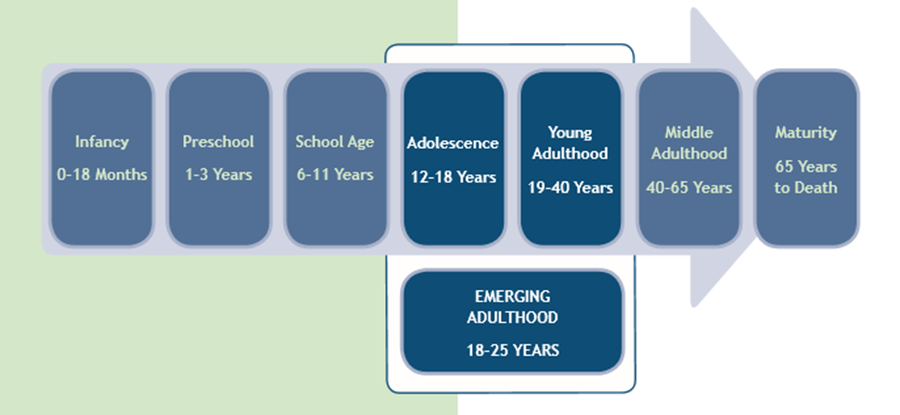Adolescent development involves the transition from being a child to being an adult. It has social, personal, cultural, neurological and physiological aspects, which begin in the early teens and continue into the late twenties.
Adolescence is a period of identity-forming when young people need to develop:
- a new physical sense of self
- new intellectual abilities and the ability to cope with increased cognitive demands at school
- expanded verbal skills
- a personal sense of identity
- the ability to control impulses, calibrate risks and rewards, regulate emotions, and think strategically
- establish adult vocational goals
- emotional and psychological independence from parents
- positive peer relationships
- sexuality, sexual behaviour, and sexual identity
- their personal value system.
Labouvie-Vief, G (2006), cited in Jim Casey Youth Initiative (2011, p 17)

(Arnett, J 2007, cited in Jim Casey Youth Initiative, 2011, p. 16)
Our growing understanding of brain development, including the effects of trauma and disrupted attachment gives us important knowledge about adolescent development.
Published on:
Last reviewed:
-
Date:
Maintenance.
-
Date:
Maintenance.
-
Date:
Maintenance.
-
Date:
Page created

